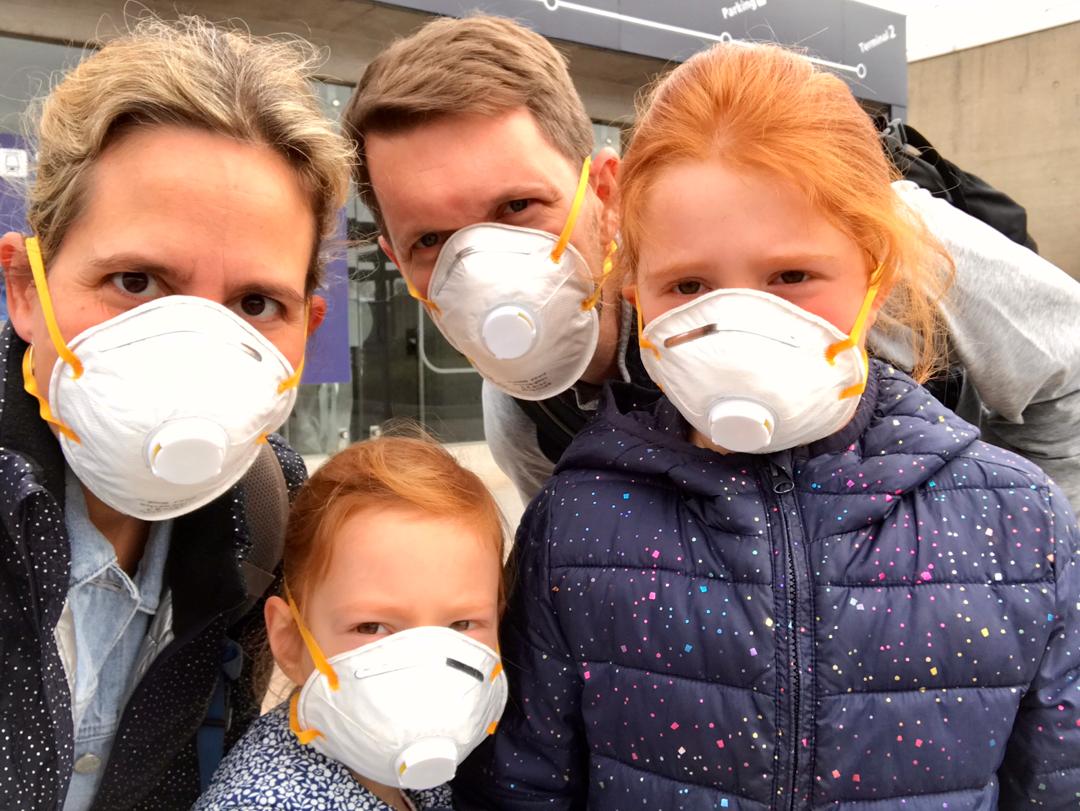Q&A: With David Forest, Head of Programs, Africa
Story

David Forest, Cuso International’s Head of Programs-Africa, moved from Ottawa to Benin in September 2019 with his partner and their two young children to assume his new role. The family was forced to return early as the coronavirus began to rapidly spread through Europe and North America, and the Canadian government urged Canadians to come home. David sat down by phone for a Q&A about how the coronavirus has impacted his work.
Can you talk a little bit about what it was like in Benin when you got word about the need to come back to Canada?
Of course. We were following the news in Europe and in Canada, but it felt very remote from Africa and from Benin. By the time we made the decision to leave, we could see the impact, the fear, the stress, in terms of several restaurants and businesses closing, the schools being closed, people wearing masks.
In my initial conversation with the Canadian Embassy, we felt it wasn’t required to travel back to Canada. Three days later, the embassy called saying we were all being evacuated. Really, that was a shock to realize that, in a few days, things changed so much.
We were still apprehensive about finding the right time to leave. We didn’t want to leave too early as we were committed to our mission. But we also didn’t want to wait too long and be in a position where, because of border closures and flight suspensions, we wouldn’t be able to leave. I didn’t want to put my family at risk. We’re hopeful that we might be able to go back to Benin, at some point.
What was the process, once the decision had been made that you would come back to Canada?
We had about a week to pack our personal belongings It was quite intense with the usual workload, the added pressure of managing this crisis and school at home, and then packing our stuff. Plus, all the uncertainty with the flights.
We left Cotonou fairly early in the morning, on Thursday, April 2, and had a layover in Paris. Then, we took a flight from Paris to Montreal on April 3. It was really striking; Charles de Gaulle airport in Paris is a big hub in Europe, but the airport was empty. It was weird, honestly. Even on the flight, I think we were about 20 to 30 passengers.
What’s happening with Cuso staff who work in our country program offices?
In Benin, our staff is home with a rotating number going into the office. We had a number of activities in the northern part of the country and we decided to continue with them, implementing the required measures of masks and cleaning hands, and respecting physical distance between the participants.
The confinement measures that are taking place in Europe and in North America are very difficult to implement in Benin. They locked down the two or three regions where COVID-19 had been recorded, including Cotonou, to prevent people from leaving these areas, but there were no strict measures like the ones we’re facing here. Although a lot of businesses are shut down and people are wearing masks, it’s very difficult in an African context, considering the population density and the way homes are built, to ask people to stay home.
In the Democratic Republic of the Congo (DRC), our staff are working at home. They cannot go to the office with the governmental measures. It’s really locked down and it’s quite strict. In Ethiopia, we have a rotating system.
We don’t have any offices where it’s business as usual. It’s either people are working from home or we put in place a rotating structure so that people can come in and out of the office if it’s absolutely needed.
What message would you want to leave with our staff and our volunteers who have been affected by this?
A: Although our work has been interrupted and, in some cases, suspended, it is still very important. All the issues we were working on and trying to solve and address with our partners are still relevant and need our attention now more than ever. We can ride this wave and have a positive impact on the world.